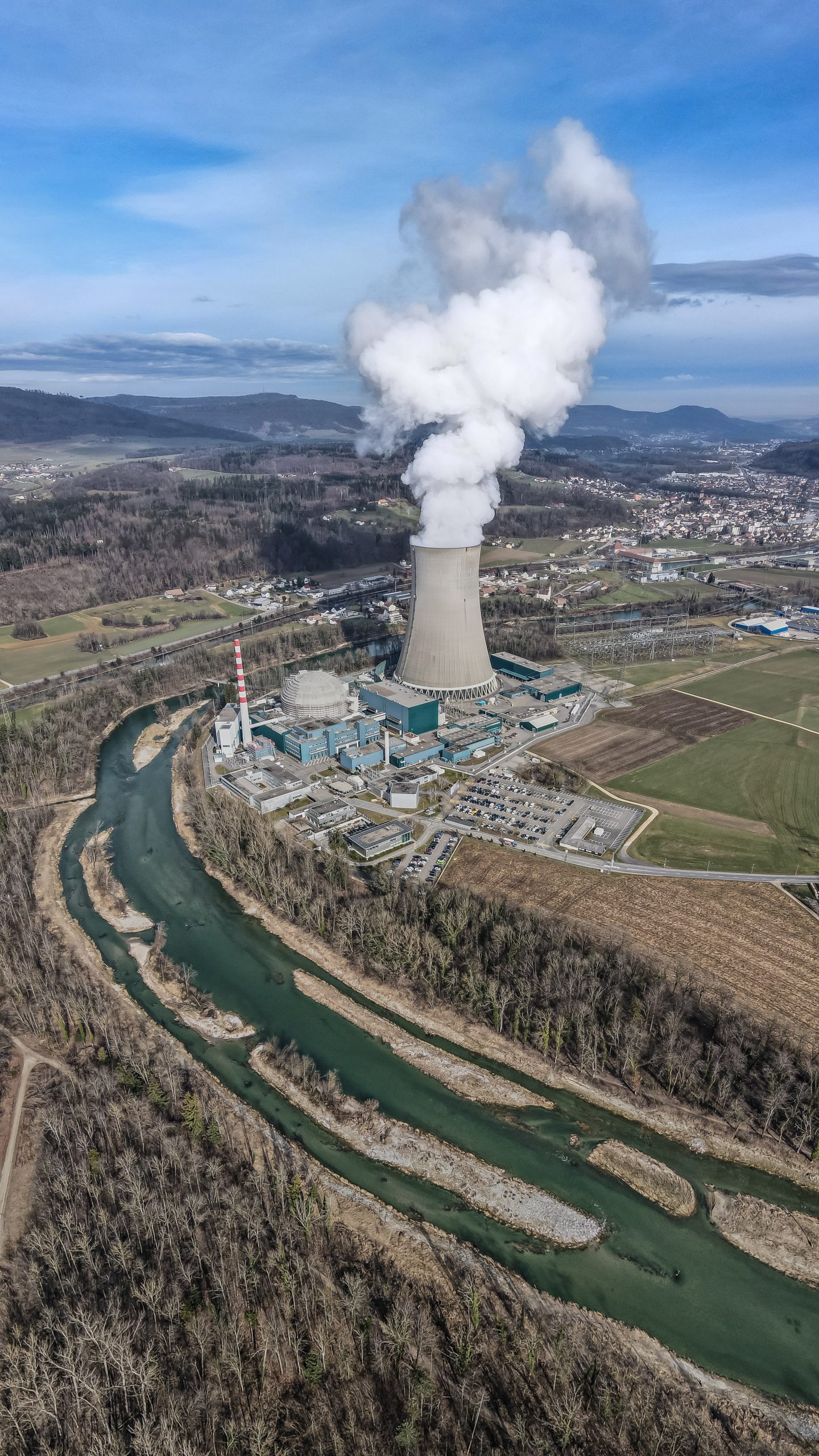By Steven Schmidt
According to UN, the urgent need to reduce emissions and slow global heating, should involve the roll-out of more nuclear power stations.
The United Nations Economic Commission for Europe (UNECE) has released a document arguing that nuclear power can help deliver on the Paris Agreement and the 2030 Agenda for Sustainable Development.
“Nuclear power is an important source of low-carbon electricity and heat that can contribute to attaining carbon neutrality and hence help to mitigate climate change,” UNECE Executive Secretary Olga Algayerova said.
In the new technology brief published on Wednesday, the agency warned that “time is running out to rapidly transform the global energy system,” as fossil fuels still account for over half of electricity generation in the UNECE region, which include the countries of Europe, but also countries in North America, Central Asia and Western Asia.
The report highlights how only hydropower has played a greater role in avoiding carbon emissions over the past 50 years.
Nuclear power is a low-carbon energy source that has avoided about 74Gt of CO2 emissions over this period, nearly two years’ worth of total global energy-related emissions, it noted.

Yet nuclear power currently provides 20 per cent of electricity generated in the UNECE region and 43 per cent of low-carbon generation.
Still time to limit climate change
The publication comes as the Intergovernmental Panel on Climate Change (IPCC) released its landmark report on Monday, warning that some climate change trends are currently now irreversible, but there is still time to limit it with strong and sustained reductions in emissions of carbon dioxide (CO2) and other greenhouse gases.
The UNECE document also highlighted a 2018 report by the IPCC which sees demand for nuclear generation increase six times by 2050 with the technology providing 25% of global electricity. Nuclear power, it stated, has the potential to increase its integration with other low-carbon energy sources in a future decarbonised energy mix.
Powering the region
According to the document, in the UNECE region, nuclear power is providing over 30% of electric generation in eleven countries (Belgium, Bulgaria, Czech Republic, Finland, France, Hungary, Slovakia, Slovenia, Sweden, Switzerland, Ukraine).
Twenty countries currently operate nuclear power plants, and fifteen countries have new reactors under construction or under development. Seven UNECE member States are in the process of developing nuclear power programmes for the first time.
A number of countries – such as Canada, Czech Republic, Finland, France, Hungary, Poland, Romania, Slovakia, Slovenia, Russia, Ukraine, the United Kingdom and the United States – have explicitly stated that nuclear power will play an important role in reducing their national emissions in the future.
Climate mitigation
In contrast, Belgium and Germany have announced phasing out nuclear power, in 2025 and 2023 respectively.
Over 70 reactors have been shut down since 2000, for political, economic or technical reasons.
In most cases, these have been replaced at least partly by fossil-fuel power generation. The report argues that this represents a setback for climate mitigation efforts. Preventing the premature closure of further nuclear power plants is seen by the International Energy Agency and the International Atomic Energy Agency (IAEA) as an urgent priority for addressing climate change, it states.
Nuclear options
As nuclear power plants produce both low-carbon electricity and heat, they also offer opportunities to decarbonise energy intensive industries, the UNECE report argues, such as scaling up low or zero-carbon steel, hydrogen, and chemical production to decarbonise hard-to-abate sectors.
Nuclear power is cost-competitive in many parts of the world, it states. But the UN agency warns that to prevent radiological accidents and manage radioactive waste, risks must be properly anticipated and handled.
Some countries choose not to pursue nuclear power because they consider the risks to be unacceptable. The technology brief highlights the need for nations that use nuclear power to work together on these issues to help mitigate climate change and accelerate deployment of low-carbon technologies.
Radioactive waste and security concerns must be addressed
However, there are persistent public concerns about the potential dangers to health and the environment caused by radioactive waste from nuclear plants. This was addressed earlier in 2019, at the opening of the first-ever International Conference on Climate Change and the Role of Nuclear Power in Vienna. Advances concerning the disposal of such material may alleviate fears about the long-term sustainability of the energy source.
Mr. Liu Zhenmin, the Under-Secretary-General for Economic and Social Affairs (DESA) stated that the problem of radioactive waste is an “unresolved issue” that needs to be addressed.
Mr. Zhenmin also raised nuclear safety, which he described as “a significant public concern, especially after the Fukushima accidents and terrorism related fears”.
The large up-front costs of nuclear power remain an important issue, continued Mr. Zhenmin, and renewable energies, such as solar and wind, are continuing to drop in price, becoming increasingly competitive with conventional, fossil-fuel based sources. Meeting the capital costs of building nuclear plants will require government commitments, and public acceptance.
Nuclear technology’s ‘important role in society’
Nuclear technology plays an important and positive role in society, added Mr. Zhenmin. He outlined some of the benefits, such as monitoring pollution, and assisting in the diagnosis and treatment of cancers and other major diseases, and pointed out that radiation technology helps prevent food from spoiling, and to create new crop varieties, which supports climate change adaptation.
Mr. Zhenmin referred to the work of the Intergovernmental Panel on Climate Change (IPCC), the UN body tasked with providing objective, scientific reports on the changing climate, which has shown that far-reaching changes to the way we produce energy must occur if we are to limit global warming to 1.5 degrees above pre-industrial levels.
In its various models for a sustainable energy future, the IPCC has included significant increases in nuclear power generation by 2050, ranging from a 59 per cent increase, to a 501 per cent rise.




